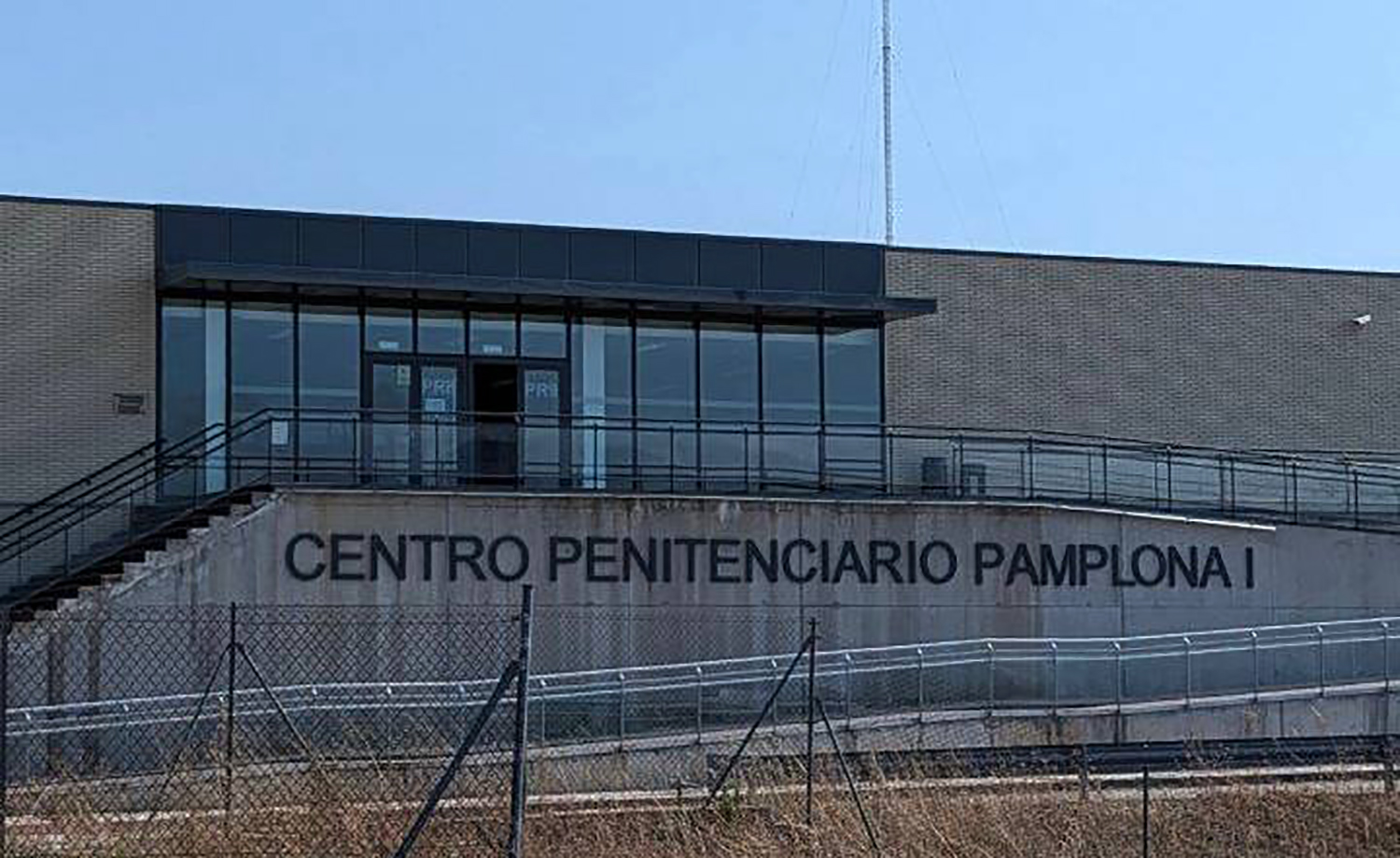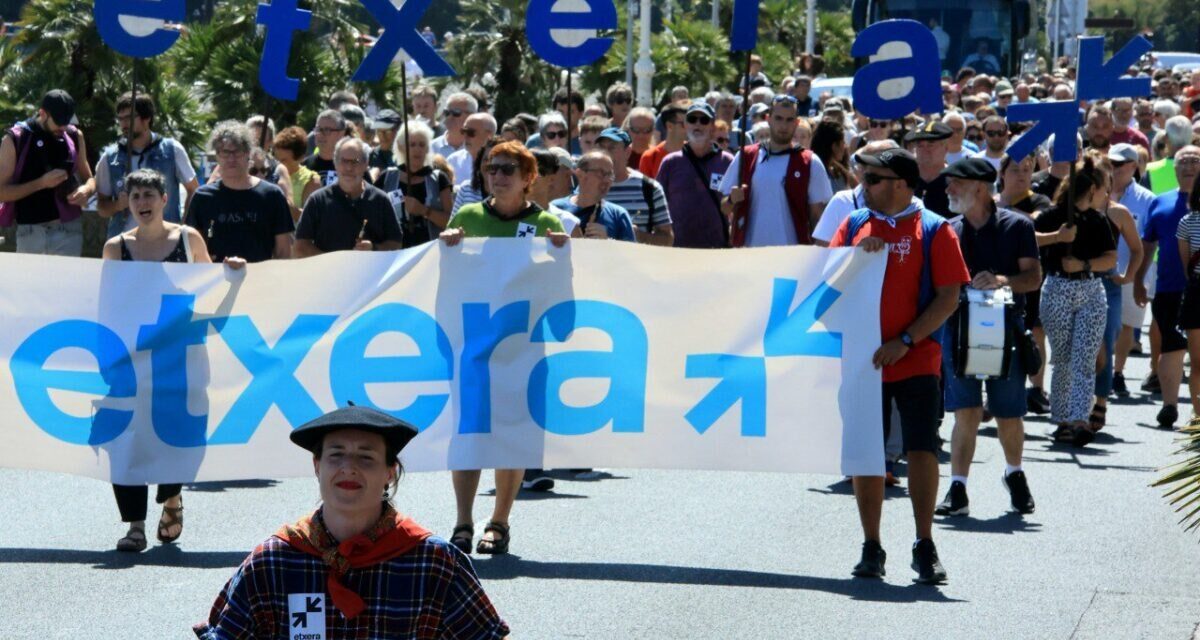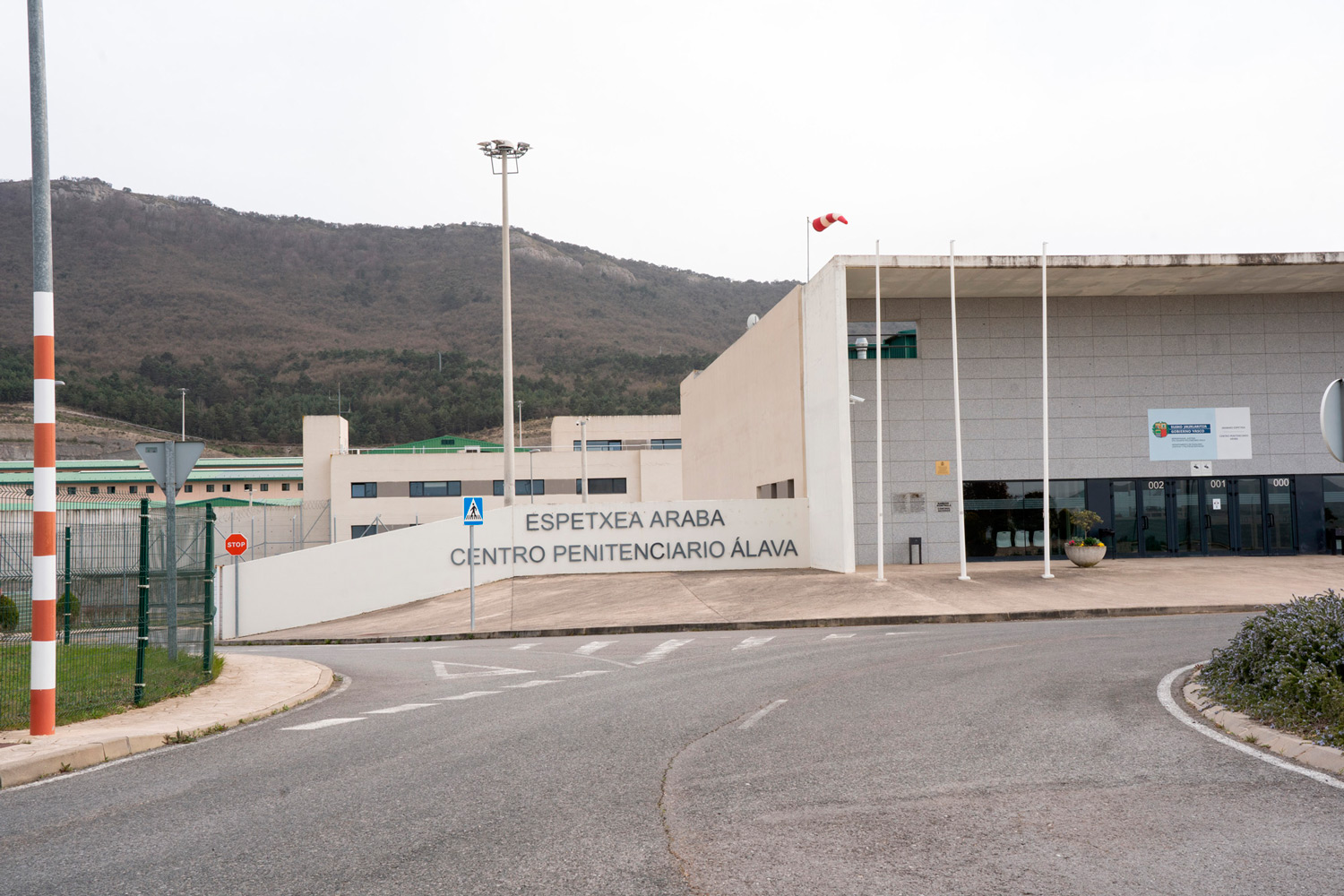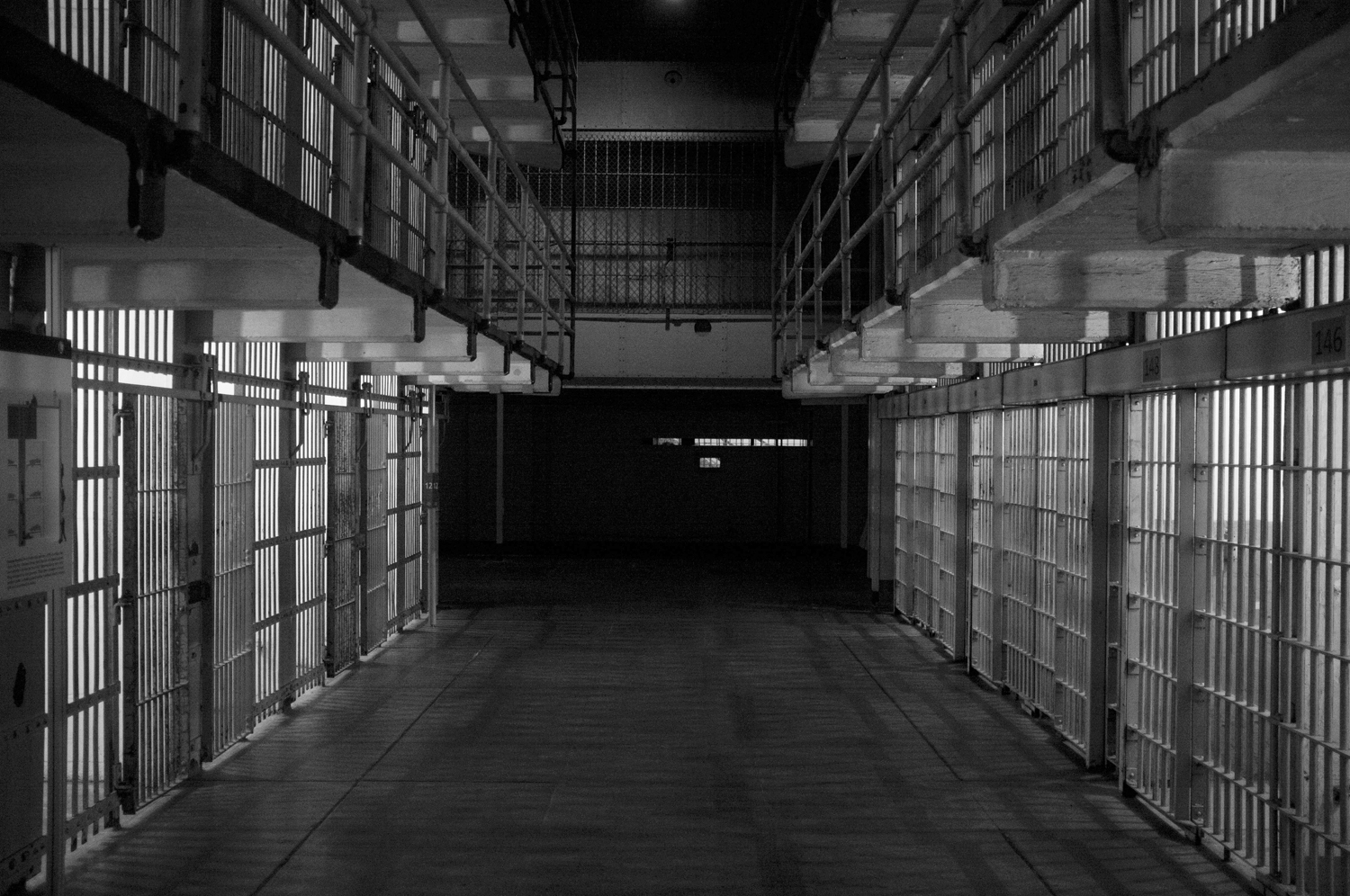"Prison gets sick and prison kills."
- Libertad Francés Lecumberri, coordinator of Salhaketa Navarra, has talked about the shortcomings of the health service in prisons: “When the health staff is transmitted with the logics and criteria of the penitentiary center, instead of being the guarantor of certain rights, they protect the interests of the penitentiary center”.

The aim of the Salhaketa Nafarroa association for prisoners is to empty and close prisons. And in the meantime, take measures to improve the situation of prisoners, inform and reflect, among other things. The coordinator of the Asociación Libertad Francés Lecumberri comments on the shortcomings of the health service of the prison in Pamplona, highlighting the lack of accessibility to medical care, that the service is outside the consultation, that they miss appointments with specialists and that they have difficulty obtaining the third grade: “Prisons like that of Pamplona are concrete and these spaces are authoritarian, according to the logics of filling, without contact with nature, drugs.”
In 2021 they managed to make the Government of Navarra competent in the area of prison health. What did this mean?
Although the Law says that communities must manage the health service of prisons, until 2021 the health service of the penitentiary center of Pamplona depended on the general secretariat of the penitentiary institutions. When it depended on the State, the health service was in decline, and the Administration itself acknowledged that there was insufficient staff and that care was limited. This means that they have been like this for a long time. Since 2021, we have managed to ensure that the Government of Navarre takes its responsibility.
What changes has it brought about?
As time has passed, we do not have much information about its impact on practice. On a social and political level, however, we have had a great deal of influence, because that is why the Government of Navarre has assumed its duty. It has been a further step in demanding improvements in Madrid, enabling us to address the Government of Navarra directly. At the time there were no doctors in the prison in Pamplona, there were problems with the medical records when leaving the prison and entering. That is why we hope that these things will no longer happen or that they will slow down. It is true that those inside have not noticed major changes or direct changes, so we are being careful.
Has mental health also been strengthened?
We believe that they have made a great effort to strengthen it, but that does not mean that it is good care. Attention is not good because people with metal health problems need more enjoyable spaces. In addition, spaces get worse. Prisons like Pamplona are made of concrete and these spaces are authoritarian, according to the logic of enclosure, without contact with nature and there are drugs. In these contexts it is difficult to work on mental health. In addition, resources are still lacking, especially outside prison.
"At times when there's no medical care, the guards are responsible for measuring whether your headache is enough to give you something."
They claim the need for the presence of social workers in relation to health professionals.
People with more precarious social situations present more complex health conditions. Sometimes it is the health conditions themselves that lead to social exclusion.
What kind of health complaints do you receive?
Knowing what happens in prisons is very difficult. Certain rights violations are sometimes not reported to prevent collateral damage. However, we have received many, such as the lack of accessibility to health care, because health care is left to the guards at times when medical care is not fixed to assess whether the headache you feel is enough to give you something; poor attention; delays in attending specialists; missed appointments because there is no police; and disregard people who are in poor health status. Because the law says that people over 70 and people with incurable diseases are entitled to third grade and parole. According to the complaints we receive, health professionals do not make proposals to take all these issues into account.
"They sell us that people who have done the worst are in jail, but it's not true."
So far, workers had to act according to the prison rules. They must now follow the Osasunbidea standards. What does this mean?
Health professionals should follow a number of criteria and identify violations of rights such as abuse, torture or isolation of the inmate when it is particularly harmful to mental health. When workers are infected with prison logics and criteria, instead of being guarantors of certain rights, they protect the interests of the prison. In other words, they try to ensure the safety and prestige of the prison.
Is prison sick?
He is ill by prison and killed by it. According to the studies, deprivation of liberty for long periods of time has a significant impact on vision, hearing, taste and other senses, as well as on ways of relating and mental health, and in prisons there are diseases that no longer exist on the street. In addition, prison is a factor causing suicide. If it is an instrument of reintegration, people cannot be isolated by authoritarian measures, dispossessed responsibilities, infantilized and then returned to normal.
What alternative do you propose from an anti-punitive point of view?
We want people to reflect on the subject and question what spaces prisons are and how we solve conflicts. It is also necessary to explain the prison situation and to understand that social conflicts are the result of social, economic and other inequalities. We then ask the same question from the anti-militarist movement: what do we spend the money on? We can spend to contribute to the prevention of quality public health, education and universal basic income. Our aim is not to make prisons more enjoyable, but to avoid jail, because we believe they are not necessary. There's uncertainty that the people who have done things the worst because they sell us are in jail, but it's not true. We must break the model of grief. As long as we do not close prisons, we are trying to make some improvements to improve the situation of prisoners.
Banku atrakatzailea, presoa, Trantsizio garaian espetxetan borroka historikoa piztu zuen COPEL taldeko sortzailea, euskal talde armatuetako kideen laguna, ostalaria, militantea, libertarioa, ortuzaina. Gauza asko izan da eta da oraindik ere Daniel Pont. Abenduan Girona utzi eta... [+]
What surprised you the most when you left jail? I've been asked many times in the last year and a half.
See that the streets of Bilbao are full of tourists and dogs with two legs, for example? Or the changes in the political situation? The first one has tired me and annoyed me... [+]
Since we were transferred to Euskal Herria from the prisons of the Spanish State, in the prison of Zaballa we have found many deficiencies in the field of communication. We have fewer and shorter face-to-face contacts, we have had to make visits to the speaker in poor technical... [+]
In our crew, at earlier ages, we often said we were used to losing. We were immersed in a multitude of small and big conflicts, almost always with reason and imagination, but most of the time we lost. Imagine! We were on the anti-Guggenheim platform with the slogan Guk ein. And... [+]





















